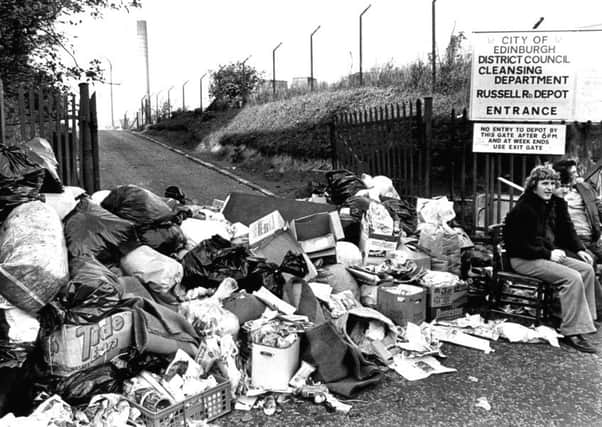General Election 2019: How politicians’ wild promises are damaging politics – Bill Jamieson


Click, switch, click, switch: it’s the sound of thousands of radios and TVs being turned off or channels being switched across the land.
Barely has the official election campaign begun than an exasperated public has already had enough – and this with five weeks yet to go: the mantras, the repeated phrases, the dog-whistle calls, the dissembling we’ve all heard before. The great Brexit switch-off has already struck at TV news-time ratings. Now it is spreading across all election coverage.
Advertisement
Hide AdAdvertisement
Hide AdThis bloated, credulity-stretching exchange of claim and counter-claim is battering us senseless: “Brexit a catastrophe”; “dragged out against our will”; “Brexit done by January” or in six months; another referendum; a second Scottish independence referendum.
Then there’s the billions of pounds more for the NHS; dozens more hospitals promised; chants of “NHS not for sale”; billions more for care services, billions more for infrastructure projects, billions more to combat climate change and a massive programme on zero-carbon homes; billions more for better roads and for the police; billions upon billions tottering beyond belief.
Higher grow the promises – and higher still the borrowing and the bills.
The parties are locked in an insensate bidding war, taking the government share of the economy back to the unsustainable levels of the 1970s. That ended well, didn’t it, with the arrival of the men from the IMF? And with postal and rail strikes now being threatened, a repeat of the Winter of Discontent looks ominously close. At this fulcrum point in our fortunes, the clamour grows for more. But that is the way of auction house politics: the more that is promised, the greater the demands.
Bear pits and vacuous vox pops
I remember decades ago feeling there was not enough political discussion on radio and TV. Now we have gone to the other extreme: extended election news broadcasts, repetitive commentaries, garrulous and contradictory opinions and angry interrogations. Questions are hurled at candidates to force a hesitation or slip of the tongue, such results then repeated ad nauseam in news updates throughout the day in case we missed it the tenth time.
Studio discussions become bear pits, and all this interspersed by vacuous vox-pop street interviews with an exhausted public: little wonder the great switch-off is gathering force. This is how politics as we once knew it is being killed.
Here are just some examples of how claim and counterclaim have been brought to an incredible extreme.
Liberal Democrat leader Jo Swinson has opened her campaign with the extraordinary aim to become prime minister, transforming her party’s 20-seat representation – a feat never before achieved. She has stated that she would not form a pact that would put Jeremy Corbyn in Downing Street. So astonishing are such declarations one cannot but wonder if she is well.
Advertisement
Hide AdAdvertisement
Hide AdI have some sympathy for her protest against the proposed TV debate between Johnson and Corbyn from which she has been excluded. Her voice should be heard. But if the Remainer Lib Dems, why not Nigel Farage and the ‘clean break’ Brexit Party? And the SNP, which is set to win substantially more Scottish votes? But alas, more heat than light, I fear.
A return to 1970s
What of policies? Under the Conservatives, a report from the Resolution Foundation this week calculates their plans would take spending to 41 per cent of Gross Domestic Product, smashing the force of its attack on Labour’s ‘magic money tree’ fiscal plans. It has pledged to end the freeze on benefits (cost: £5 billion a year), build 40 hospitals, with the first six reckoned to cost £3 billion, and a five-year roads plan costing £25 billion.
Under Labour, spending would rise to 43 per cent of GDP – higher than the 37 per cent average in the two decades leading up to the 2008 financial crisis. We would be back in the average 42 per cent of GDP recorded between 1966 and 1984. Higher taxes? But the tax take is already at its highest since 1969-70 when Roy Jenkins was Labour chancellor.
Labour’s proposal for a “green industrial revolution” plans to make every home energy efficient at a cost estimated at £60 billion. And its plans to nationalise the water, electricity and gas industries are reckoned on CBI estimates at £200 billion.
Labour’s John McDonnell has reacted furiously over Government plans for the civil service to calculate the cost of Labour policies, arguing that this was interfering with the election. Civil service head Sir Mark Sedwill has now blocked the proposal. However, even allowing for alternative accounting by the Labour chancellor with higher taxes invoked, this programme would take us over a fiscal brink.
Little wonder it’s now tune out and switch off: it’s a toxic political culture that is pushing the button of self-destruct.
